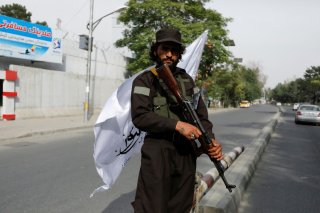Hell on Earth: Afghanistan Is Suffering Under the Taliban
Key stakeholders with adequate experience in Afghanistan must reassess their hitherto tolerance of the tragic developments in Afghanistan since August 2021.
All told, for UNAMA’s “engagement” strategy to produce any sustainable solutions for ending the ever-widening humanitarian crisis and human rights violations in Afghanistan, the UN must explore options for a much stronger mandate that can help reengage the international community in support of Afghans. The “responsibility to protect” suffering Afghans from the Taliban and their affiliated terrorist networks must underpin such a UN mandate.
This same call was often made before the tragedy of 9/11. But much to everyone’s regret in the wake of 9/11, “the responsibility to protect” Afghans had always been ignored, even though its consequences had been communicated to the European Union by Afghanistan’s National Hero Ahmad Shah Massoud in early 2001. Today, Afghanistan has returned to the same pre-9/11 dire human rights situation under the Taliban, whose complete negligence (including underreporting by UNAMA) has serious implications for regional stability, international peace, and U.S. homeland security.
Key stakeholders with adequate experience in Afghanistan must reassess their hitherto tolerance of the tragic developments in Afghanistan since August 2021. They should seek to leverage their direct and indirect influence to revive Afghanistan’s dead peace process, which the Taliban repeatedly disrupted since its start in 2020 and then abandoned it altogether. This endeavor should facilitate the achievement of a sustainable political settlement that helps form an inclusive government acceptable to all Afghans, consistent with the Afghan Constitution and Afghanistan’s international obligations.
Meantime, any renewed peace efforts should tangibly support the growing resistance by Afghans against the Taliban’s oppression and premeditated targeting of specific ethno-sectarian groups. With a strong mandate and adequate resources, UNAMA can be fully operationalized to lead the international community’s “responsibility to protect” vulnerable Afghans and to prevent any of the Taliban’s further attempts to commit such heinous crimes against humanity as scorched earth measures, large-scale ethnic-cleansing, and even genocide—mostly targeting Tajiks, Hazaras, Uzbeks, Turkmens, as well as nationalist and pro-democracy Pashtuns.
Indeed, UNAMA shouldn’t repeat the fate of the United Nations Mission for Rwanda (UNAMIR) in Afghanistan, before it is too late. Countries, including the United States, which later apologized in case of the failure of UNAMIR, can take a lesson from that unforgettable tragic experience and avoid a similar tragedy in Afghanistan. Doing so will foremost help ensure the protection of homeland security of the United States and its NATO allies and help maintain international peace and security. This is consistent with the core principles of the UN Charter, which the Taliban and its state-sponsor Pakistan unprecedentedly violated on August 15, 2021.
M. Ashraf Haidari is the Ambassador of Afghanistan to Sri Lanka, and concurrently served as the Director-General of the South Asia Cooperative Environment Program (SACEP) until August 2021. He was Afghanistan’s Deputy Ambassador to the US and India, and formerly served as the country’s Deputy Assistant National Security Adviser. He tweets @MAshrafHaidari
Image: Reuters.

